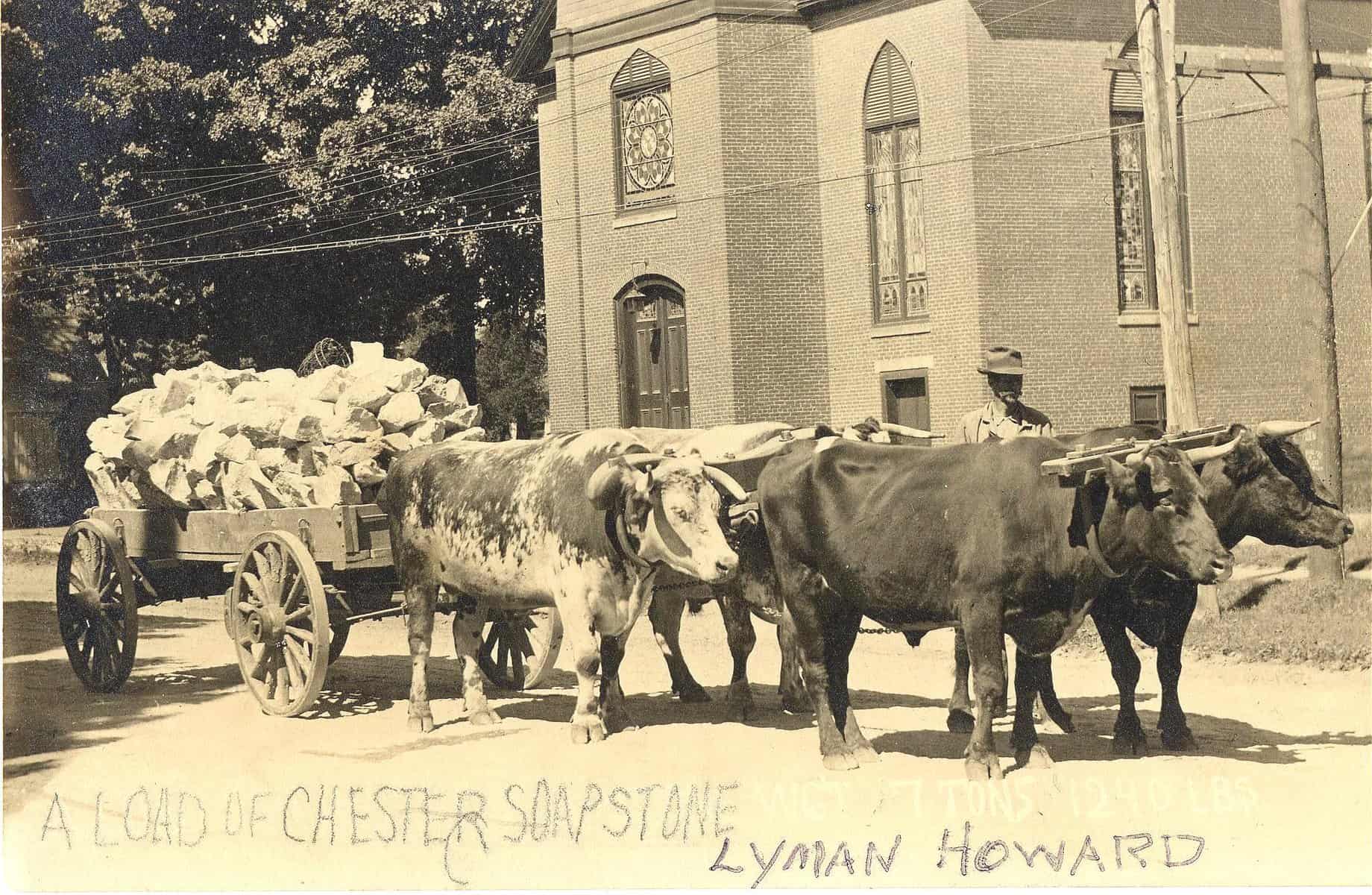
In the 1950s, Ed Kendall had a column in the Springfield Reporter. Below are excerpts from Ed’s Jan. 29, 1958, column. It is far too long to include in its entirety.
“On July 10, 1885, the Chester Steam Power Co. leased some land to the Union Soapstone Co., at an annual rental of $25 for the purpose of erecting a mill for sawing and manufacturing soapstone, the roof of which should be covered with metal or slate…
Big saws installed
Two up and down saws were installed to cut the large blocks into slabs of various thicknesses. Circular saws for cutting the slabs into the desired sizes were set up just beyond the up and down saws. A large revolving polishing bed, on which, with the aid of water and grits of various degrees of fineness, a very fine, smooth surface was produced on the pieces used in their manufactured products.
A large room was occupied by the tubmakers. In this room 10 or 12 men were engaged in the manufacture of laundry set tubs and kitchen sinks. It was an interesting sight to observe these men at their labor. The sides and ends of the tubs and sinks were mortised and tenoned and bolted together in a manner similar to one that would have been used if the material had been wood.
The joints were made leak-proof by a cement, the principle ingredient of which was litharge. The soapstone sink, with its high backboard and carved soap dishes, was an ornament in any kitchen. It was much easier for the housewife to keep clean and free from mars and scratches than the enameled ones in use today.
Make-up of Company
T.N. Wheelock was for many years a resident of Chester. He was at the shop every day, directing the work of the men and looking after the many details connected with the business.
George W. Cummings was connected with the First National Bank of Francestown, N.H. and he was a cashier. He made weekly trips to Chester, spending two or three days each week at the plant and quarry.
Charles W. Burns of Wilton, N.H., the third member of the firm used to visit Chester occasionally. He had charge of marketing at Boston. Mr. Burns had a son Charles, who was connected with the Boston end of the business…
First Superintendent
The first superintendent at the shop was a Mr. Phelps. I think he was a son-in-law of T.N. Wheelock. He was brought up from Francestown where he had become familiar with all phases of the manufacturing of soapstone products in their shops at that place. Mr. Phelps resided on North Street. I think Mr. Phelps died rather suddenly and his job taken over by William O. Davis, a life long resident of the town.
He was an accomplished musician and led the Chester Cornet Band. When the Ladies Aid Society bought a steam fire engine for the South Street Fire District, Will Davis at once took over as its engineer. How well I remember its initial trial! Its operation was a wonderful sight to all of us boys…The sharp staccato noise of the engine’s exhaust frightened us…
When the people of South Street reached the conclusion that Steamer Aid No. 1 had reached the end of its usefulness and decided that a reservoir was needed for fire protection and to supply the village with a water supply, W.O. Davis was one of the prime movers in putting the proposition over. No man had more to do with locating and building the reservoir and laying the water lines than he. For many years he was Chief Engineer of the Fire District. Chester owes much to the genius of this man, used in the installation of its water system.
40 Men In Quarry
Myron Robbins, who I mentioned in a previous article, informs me that at one time he counted 40 men laboring at the quarry. Thus at the quarry and mill nearly fourscore of men were furnished employment. A long steep hill had to be negotiated in driving from the mill to the quarry. For many years a six horse team, with an extra strong wagon was employed to haul the stone to the mill.
The large blocks would weigh from seven to nine tons. The drivers had many hair-raising moments driving down this hill with their heavy loads…”
This week’s old saying was used when someone had a black eye: “It seems you were talking when you should have been listening.”